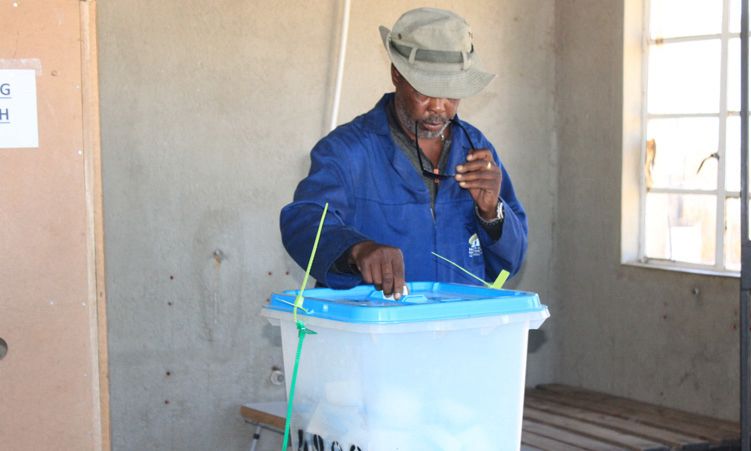Southern Africa is facing one of the most severe droughts in recent memory, and Namibia, with its arid landscapes, is definitely no exception.
One thing I know we can agree on is that the weather report can be very unpredictable – with TV weather people not being the most popular – but this time, we can all feel it when they say we don’t have it easy.
Water is scarce, livestock farming is almost impossible, people’s stock, especially in the rural areas of the country, are dying every day, and the proper rains are nowhere to be seen.
Even commercial farmers are struggling to sustain cattle, goats and sheep because of low to non-existent water supplies and grazing lands.
However, in these challenges, one resource remains resilient – game meat.
Its been the talk of environmentalists and conservation groups and the international community in recent weeks, when the Ministry of Environment, Forestry and Tourism issued a statement that there will be a culling of animals to provide alternative food to ease the impact of the drought.
Of course, there was an uproar, but if the people had taken the time to not only understand what the country is going through but also who we are culturally and our diets, they would choose to change their tune. After all, they are our animals.
We should get to decide what works for us and what doesn’t.
But this is not a political conversation. The politics of food can be discussed another time.
Our diet is varied and allows us to enjoy what the land provides.
Our ancestors, before the domestication of livestock, lived off the land. We are no strangers to meat from the veld, and we’ve been consuming it for a while. I remember some time back sharing a recipe for some great kudu steaks in this column.
The thing is, Namibia’s game populations are uniquely suited to survive in the country’s dry conditions. Unlike livestock, which require consistent water and feed, game can thrive on minimal resources. This resilience makes game meat not only a reliable protein source during drought but also a sustainable choice.
We can also have a conversation on how game meat is healthier and leaner than traditional livestock meats like beef or pork. Its nutritional value, combined with the sustainability factor, makes it an appealing option, especially in the face of the current drought.
Dishes like biltong and hearty stews are integral to family gatherings and celebrations.
They reflect the deep connection we have to the land and the ability to adapt to its challenges. The communal experience of preparing and eating game meat is a cherished tradition.
Families come together to share meals that have been passed down through generations, strengthening ties and reaffirming their connection to the land, and some of these recipes are centred on game meat, both big and small.
Oryx (gemsbok) and springbok are typical examples. In times of drought, these meals become even more meaningful, offering nourishment and comfort when resources are stretched thin.
Today I share a southern ouma’s tritional recipe for a gemsbok potjie.
Ingredients
- 1.5 kg gemsbok (or other game meat), cubed
- 2 tablespoons vegetable oil
- 2 onions, chopped
- 2 garlic cloves, minced
- 2 large carrots, sliced
- 2 potatoes, cubed
- 1 green pepper, chopped
- 1 can chopped tomatoes
- 1 cup beef or game stock
- 2 tbsp tomato paste
- 1 teaspoon ground cumin
- Salt and pepper to taste
- Fresh thyme or rosemary (optional)
Instructions
- Heat oil in a pot over medium heat. Brown the meat in batches, then set aside.
- Fry onions and garlic until soft. Add carrots, potatoes and green pepper.
- Add tomatoes, tomato paste and stock. Stir in cumin, salt, pepper and herbs.
- Return the meat to the pot. Cover and simmer for two to three hours until the meat is tender.
- Serve with pap or rice.
Stay informed with The Namibian – your source for credible journalism. Get in-depth reporting and opinions for
only N$85 a month. Invest in journalism, invest in democracy –
Subscribe Now!






